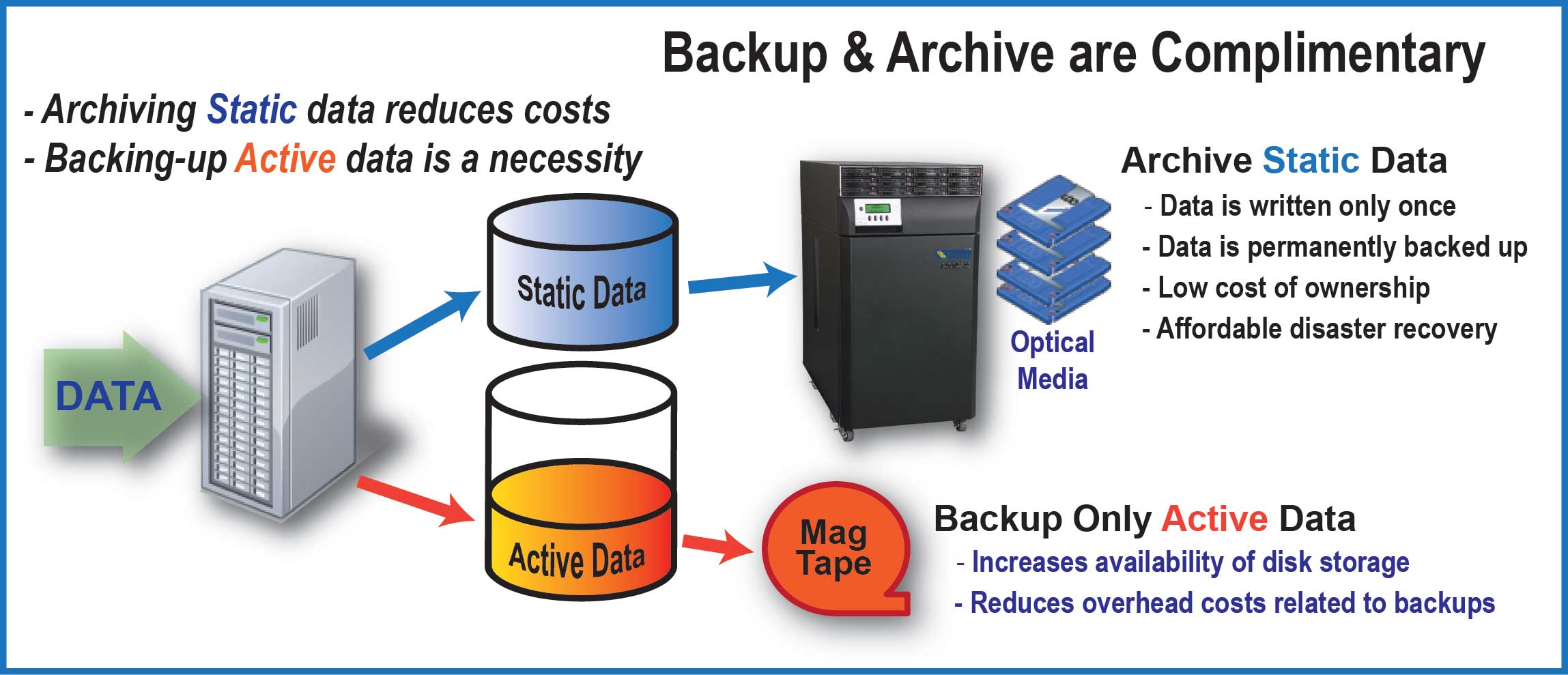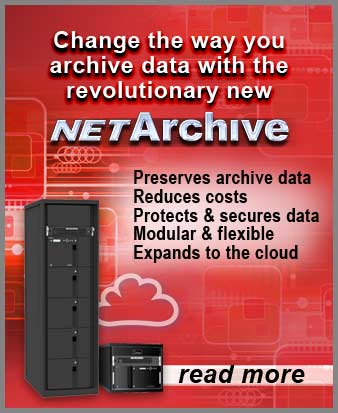Archiving vs Backup - The Difference Between Backup and Archival Storage Solutions
Organizations need storage products that provide authenticity, long-term retention of data and low total cost of ownership over time, without sacrificing the need for fast access and reliability. However, confusion often arises over the difference between backup and archival storage products and the specific technologies that address each need. With continuing high overall storage growth rates and with approximately 80% of data being static fixed content, companies must understand and distinguish between their backup and archiving needs before choosing the appropriate storage solutions to meet those needs.
-
"Too many companies believe backup and archiving are one and the same; in fact, they are separate processes that can actually improve one another." -
- 1
Essentially, a backup is designed as a short-term insurance policy to facilitate disaster recovery, while an archive is designed to provide ongoing rapid access to decades of business information while simultaneously supporting regulatory compliance and legal initiatives. Archived records can be, and often are, placed outside the traditional Tier-1 storage infrastructure onto archive storage solutions. This eliminates the need for normal backup cycles and improves operational efficiencies, while backup operations continue to protect the active data that is changing on a frequent basis.
Organizations have the requirement for both data management practices and backup solutions to protect their active data and archive solutions to store their static fixed content data, as illustrated below.

